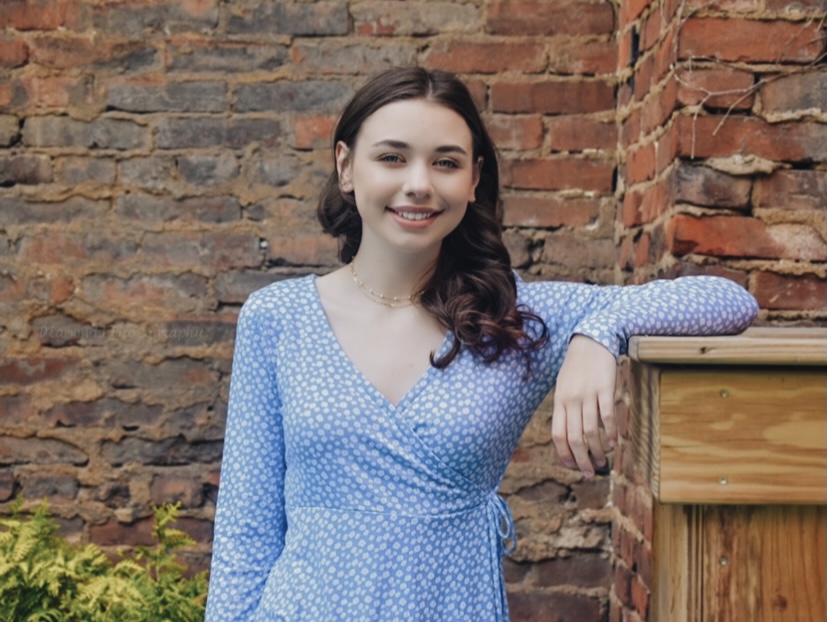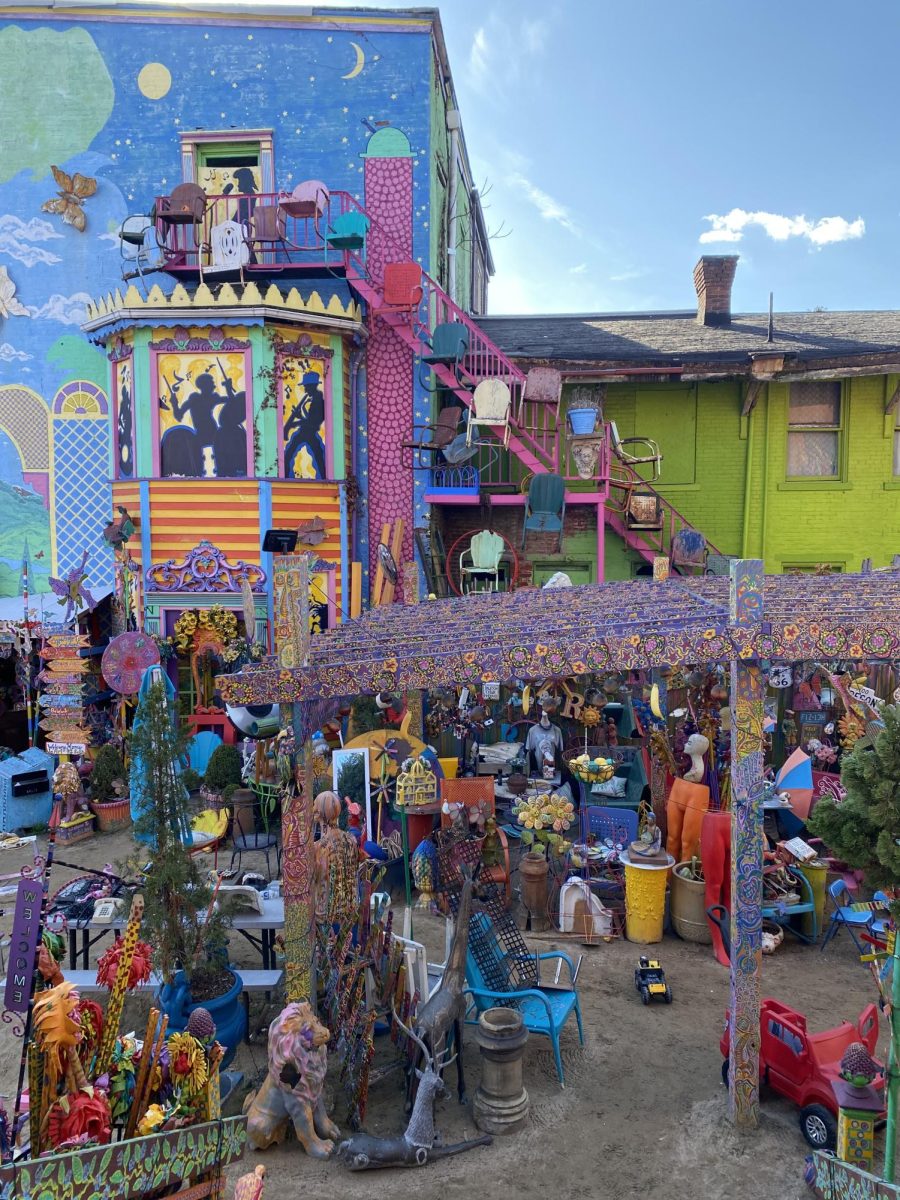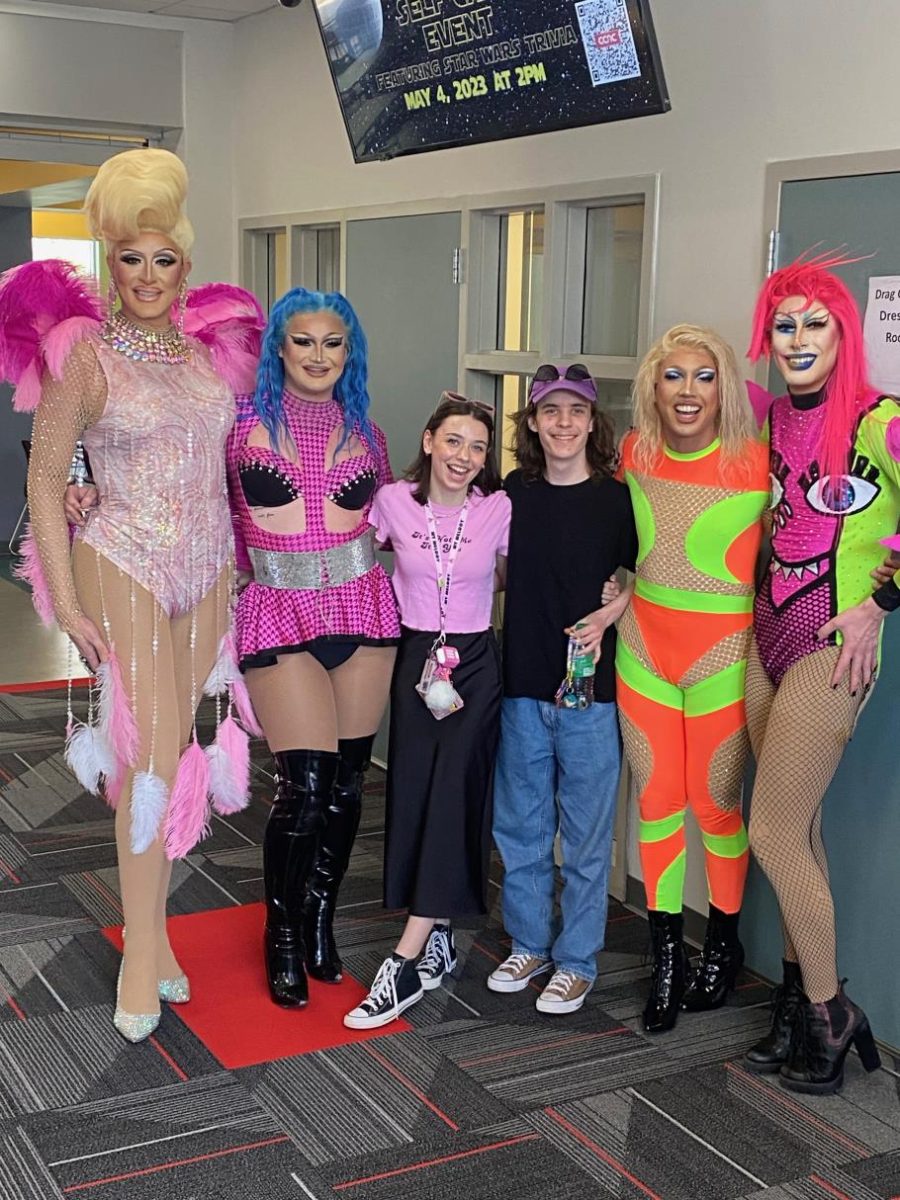Birds of Prey
for Dominick
I was nine. My parents came home hollow from the hospital.
My mother sobbed in wild animal cries, violent splotches
of purple spread from under her skin, her chest
her cheekbones tainted; my father silent
slumped in his easy chair, his neck gray-yellow
half of his face buried in clenched raw knuckles.
His eyes wide and white, he was unable to see me
and in that moment, I knew in my terror
my older brother was dead.
In our living room, atop an old television console
sat a junk-store hunk of metal art: silver-plated vultures
wings spread for battle, faced off at the edge of long thin rods
balanced with magnets against a thick knotted rock.
My father stared through me to the blank screen, raised his eyes to the ugly sculpture above.
The silver-plated raptors trembled, constricted under my father’s gaze
one bird shivered, then swayed, gave one dreadful bounce, the other bird recoiled
one vulture up, the other down, until they rose in gradual slopes – clumsy half-turns
the room’s dimness disturbed by tiny shocks of blue spark.
The birds spun in full gyrations, those raptors bowing in at each other
the vein in my father’s temple pulsed, once, twice, a third time
the rods beneath the raptors’ claws whipped into a frenzied carousel
woven into helixes, my father’s face grimaced, crimson
the birds pitching fits in uncontrollable coils.
My mother gasped from under the dining room archway
my father turned toward her, shattered, the spell broken
the birds collapsed, clattered to the carpet.
I scuttled to the room’s far edge
crouched between couch and corner.
One more remnant from that winter
packed away, rarely mentioned.
– Dr. Angelo Gaito-Lagnese
Dr. Angela Gaito-Lagnese is a professor at the Community College of Allegheny County, who also writes and publishes her own poetry. She’s originally from Pittsburgh, but has lived in Los Angeles, California as well. Angela has been teaching in many different types of classrooms since she first graduated with her bachelor’s degree. Since then, the single parent of two has achieved her master’s in fine arts and a PHD in Education.
Throughout her poem “Birds of Prey” published by The Write Launch, Dr. Angela Gaito-Lagnese describes a bird sculpture she remembers from when she was a little girl. “We had this metal sculpture when I was a little kid, and it sat on the TV like it’s described in there. My dad used to be able to make it move, I don’t know how” she explains, “When you’re little you don’t see things as they really are, but he used to do that. He used to go ‘Watch this, Honey!’ He’d stare at it, and it would start to bounce and then it would start to spin. To this day, I think about that. I don’t know what that was, I don’t know how he did that, but I remember that being a real thing. Then he stopped doing it because he said he scared himself with it because he didn’t know how he was doing it either. It was this impossible thing that happened that I couldn’t understand, which was also like how my brother’s death was this impossible thing that happened that I couldn’t understand. Those two things seemed merged to me when I was writing the poem.”
I asked Angela about this poem, initially thinking Dominick was her deceased brother. She immediately clarifies, saying “Dominick is my brother who’s alive. My brother who died, I was actually born after him. His name was Angelo, I’m Angela.” Angela was born one year following the death of her thirteen-year-old brother. Angelo was the first-born child of the new Gaito family and older brother to their second born, Dominick, who is the nine-year-old that Dr. Angela speaks of in her poem. The two siblings spent an entire childhood together growing up and establishing a brotherhood until tragedy struck their family, leaving the Gaito’s to bury their first-born son.
Angela explains drafting the poem to give a more explicit explanation about Angelo’s death, saying “I did try in an earlier version to put in something about a fever and something about a virus, but then it just seemed clunky. They don’t know what killed him, he got sick when he was 13 and he fell down in the stairwell. His legs just let out from underneath him. They got him to the hospital, his fever spiked, and he died. To this day, they never had an answer for ‘Why?’”
Her explanation of Angelo’s death and her father’s magic trick struck my curiosity. Shortly after Angelo’s death, Angela was now the Gaito’s first born daughter. Her father’s sudden telekinetic abilities following the death of her brother seemed to me as if it were an opening between the physical and spiritual world. Her father could sense this as he began scaring himself out of doing it, perhaps this was communication from Angelo.
Dr. Angela nicknamed “Angel,” experienced a childhood filled with grief too complicated for her to comprehend. She explains, “I was growing up in this family that didn’t believe in counseling, and that was in deep grief for decades. That was something that colored everything. There was this quiet vault of grief and death,” Angela was a shy child who was obedient in school but would concern others over how quiet she was. She describes teachers worrying about how little she talked, saying “It’s not surprising that I didn’t talk enough. There was lots of things we weren’t supposed to talk about. It was a complicated childhood for me because the rules just didn’t make sense.”
Angela’s older brother, Domnick, was 10 years old when she was born. Because of the survivor’s guilt he suffered, and their incredible age difference, they didn’t have much of a childhood together. I asked Angela if Dominick or anyone else in her family had ever talked about Angelo. She says, “I mean, every once in a while, they would. But no, they didn’t talk very much about him. I’ll ask my brother questions sometimes, but I think that did a lot of damage in Dominick’s life.” I asked Angelo how so? She says, “He never got married, he never let himself get super close to anybody. His life would have been different if that tragedy didn’t happen or if they’d gotten therapy for it. He’s been in California since…God a long time. It’s got to be like 30 years now.”
While Dominick moved out to California to begin his teaching career, Angela grew up in Pittsburgh with her two parents, who have both now passed away. Her parents were much older when she was born, though her mother lived to be 85 years old, passing away in 2016, almost 10 years after Angela’s father. This means that Angela’s family is essentially the only family that Dominick has left.
Angela began a family of her own at 18 years old when she gave birth to her son, and at 20 when she gave birth to her daughter. She met the father of her children in high school, saying “We were just young and stupid, and all of the sudden there were two kids.” She quickly understood the dangers of continuing to live in a dysfunctional family and how much she did not want that for her own kids, saying “We were together for a few years, but even when he was around, he really wasn’t. I was too young to recognize things for what they were. Now because I’m older, he was an alcoholic for sure…He was not a nice person, drunk or otherwise, and so he just wasn’t really around. He wasn’t equipped to be a father and so it was just better that he wasn’t there.”
Throughout one of her poems, “Feral” published by West Trestle Review, Angela describes her own children bringing in a pregnant street cat, so she had a shelter for her babies.
“The kids drag that goddamn cat into the basement
The cat is feral, her fur a silver-gray, her belly swollen, yowling for food
The kids are yowling, too until I say she can stay
The kittens are born under the cellar steps tiny and soft, a constant mewing
They suck their mama dry, nursing until her eyes sink in, her ribs showing, pink tongue panting, her hair falling out in tuffs until no one wants to touch her
One night, she finally limps out the backdoor while I cook and clean and soothe the children, preparing for the next day’s work
I don’t know if that mama cat spends her nights chasing sewer rats through back alleyways
or digging through dumpsters behind Tony’s Diner
I don’t know if she remembers the smell of us
But I’d be lying if I said I’m not jealous
Sometimes I think I hear her…calling me into the damp air of anywhere
promising I could leave them if I choose.”
This poem paints a picture that eerily resembles her own, as she describes the mama cat staying around until her babies don’t need her anymore for survival, then she can leave them there and continue her normal life. I perceived this poem to be about the father of her children, being able to step in when necessary for their toddler years and then carry on with his life after they did not need him anymore. Angela says, “We did have a cat like that. It was hard, and there’s shades of that when I was writing that poem. [Like] how she could just walk away but a mother can’t just walk away.”
Angela, however, loved being a single parent of two, “I know there’s hard stuff with their dad not having been there, but for me I just really liked having them all to myself” she explains, “It was nice then, and it’s nice now. I know that’s not what people typically think. We kind of, in a weird way, grew up together in some sense. I was a single parent but it wasn’t a tragedy. Our life was hard and we didn’t have a lot of money, but we had a very happy life together. We have really good relationships and they’re like my friends. We spend a lot of time together and they’re my buddies.”
Angela was able to gain several valuable lessons through raising her children that would go on to serve her well throughout her teaching career. She received her bachelor’s degree in 1998 and describes her first teaching job as a substitute teacher as one of her best teaching experiences. “My first week of school, because I was a permanent sub, I went on all the field trips. We went horseback riding, roller skating, I was having a party when I was there. And I was like, this is it. This is the job for me. I was custom made for this job. I ended up staying at that school for nine or ten years” she says.
Angela notes, “To this day, a lot of what I do in a classroom came from those students.” She also says, “That was helpful to me because I was a single parent, I always had a house full of kids that I was used to being around, their friends were always over. When I was in a classroom, I wasn’t expecting kids to sit there and be quiet.”
Angela Gaito has experience working with all kinds of students and children, ranging from elementary students with behavioral issues, juvenile sex offenders at the Schuman Juvenile Detention Center in Pittsburgh, high school students, and college students at CCAC. She has done some of her most fulfilling work in the classroom and is genuinely passionate about being there for her students.
I was shocked to hear her love of teaching high school students in comparison to the experiences of some of my other professors. Gaito, however, responds with “People always say that, and people said that even when I was teaching high school. Maybe I had a different yardstick because of the places I had worked. My experience was [that] people treat you how you treat them. If you give them something they’re interested in, they’re going to do the work. If you’re treating them badly, they’re going to give it back to you in spades”
Angela graduated from the University of Pittsburgh in 2001 with a master’s degree in fine arts, and by 2005 her brother Dominick had convinced her to move out to Los Angeles to continue teaching. It was not until 2017 that Angela achieved her Doctorate in Education.
After spending the majority of her life as a student, I asked Angela if she still feels like a student in some ways with the schedule of the year and the workload. Angela says, “As students, we’re trained to live that way and then I never had to grow up out of that. That’s part of what I liked about teaching high school and now teaching college…All those little fun pieces like I never had to grow all the way up, I always got to be a perpetual student in some ways, and that’s kind of a gift. Not everybody gets to do that.”
I admire Angela’s desire to not only instruct her students, but to also be taught by them. She holds friendships with her students similar to the ones she holds with her own children. Additionally, Angela shares incredible similarities with her husband, Michael Lagnese.
She says, “I knew who he was, we grew up in the same neighborhood” she says, “I joke about this because I remember as a kid, I would see him and I would think he was really cute. But he’s five years older than me, so when you’re 13 and someone’s 18, he didn’t know I existed.” She met Michael, however, through her friendship with his younger sister, Michele.
“Me and Michele were friends, there were two sisters, Michele, and Tricia. Michele was Tricia’s younger sister, so we all hung out together since we were very young” she says, “I ended up marrying her brother ironically many years later. So me and Michele had very strong ties that went back way before she was my sister-in-law.” She also maintained a friendship with Michael for years before their relationship ever became romantic.
“We were friends for a long time. We just started hanging out sometimes, it wasn’t a big romance. I didn’t have time. I was going to school and had kids, he was busy with whatever his life was. We would hang out sometimes, my kids liked him, and he was nice to my kids. We had this occasional thing for years. And then it got more serious when I was moving to California, I wanted him to come with us.”
So, Angela and Michael got married in Las Vegas and moved 3,000 miles away to California, where Angela would start teaching and seeing her brother Dominick more than a few times a year. She describes wanting to leave Pittsburgh following the death of her father throughout her poem “San Pedro Los Angeles County” published by The Write Launch, writing, “Eventually, I ran as far as I could get. His echo follows, Pittsburgh to Pedro.”
Angela was still grieving through her happily ever after – getting married to her childhood crush, her best friend was now also her sister-in-law and getting the opportunity to teach while living in Los Angeles with her daughter, husband, and older brother Dominick. Yet after marrying Michael, she was able to heal past relationship wounds and provide her children with a more stable father figure.
By 2016, Angela would lose both her mother and sister-in-law, Michele. By this time, they had already returned to Pittsburgh from California as Michael’s parents became ill. She writes about Michele’s sudden death throughout her poem, “Trying to Explain” published by Pittsburgh City Paper in 2017. Michele Lagnese died at age 42 randomly while she was at work after suffering a cardiac arrest. Angela describes the shock of losing someone unexpectedly throughout this piece, as if she cannot physically accept the reality of losing someone so quickly.
“I stood at my mother’s bedside the day before she died, her nightgown tangled across skeletal arms, her eyes already sealed shut, she hummed, mumbled in her half-sleep
But not Michele
The few miles between here and the hospital distorted into decades of distance
Two nights before, we drank decaffeinated coffee in my bedroom,
Shared Twitter feeds in the dim glow of dueling laptop screens,
And waited for the lights to come back on after the storm
I don’t know how to grieve: I have no ability to accept or lament.”
Through this piece, Angela describes being in utter shock, dealing with survivor’s guilt, and being unable to grieve or process. She is describing much of what her brother Dominick experienced as a child after losing his older brother Angelo suddenly. She ends the poem, “That is why, when you are sleeping, I count the steady intake of your breaths… That is why I argue when we are happy, until you slam your glass against the table, and rage pulses through your temple, and your jaw shifts in that stark angle… until from all the way across the room, I can feel the raucous rhythms of your heart’s sharp beats.”
I asked Angela who she was describing at the end. She says, “My husband, Michael, was who I was thinking of because it was really hard. That was a weird thing too, with Michele dying because she was one of my best friends and she was his sister. We were both just in this state of deep grief, torn apart by it”
I agree with Angela, the situation is strange, but it all clicks into place. After Michele’s death, Angela was now able to step inside the shoes of both of her parents and Dominick by learning how to deal with grief. She was able to see how grief affects a marriage, similar to the struggles of her parents. She also experienced the effects of losing someone who was like a sibling to you suddenly out of thin air, similar to Dominick. But the most fascinating of all, she married a man who would end up losing a sibling with a large age gap, of the opposite gender and name – just as she and the rest of her family did when Angelo died.
Starting all the way back to the bird sculpture, Angela has been blessed with divine protection from her deceased brother. The universe has well prepared her for the life obstacles she has come to endure – experiencing grief throughout an entire family, unexpected death, being a single parent as a teenager and transforming that into being a Doctor in Education. The people who have been specifically picked and perfectly placed into her life have allowed her to heal inner wounds and find truly fulfilling work. She can now heal childhood wounds about grief through talking about Michele and remembering her with her husband Michael to keep her spirit alive, in contrast to the dysfunctional dynamics of her family growing up. She can connect with Dominick now in a way she has not been able to before and spark a true sibling relationship between the two of them.
Each of us cross paths with people for a reason. We attract energies like that reflect our own, even in the tiniest or most unflattering ways. It is important for us to pay attention to these small connections and recognize that the universe is setting us up to live to our fullest potential. Whether we call it God, spirits guides, ancestors, or fate – it does not matter to me. What matters is that we recognize that it is there and allow it to guide us when history begins to repeat itself.
Michael Lagnese and Angela Gaito were married on “April 9th or 10th, not sure which. I think that was around 2005,” according to Angela. By her estimation, they will be celebrating their 18th wedding anniversary on Easter, during our 2023 spring break. Angelo and Michele will surely be celebrating in spirit alongside their now older siblings this holiday. Easter serves us as a beautiful time of rebirth, renewal, connection, and a reminder of life restored.





